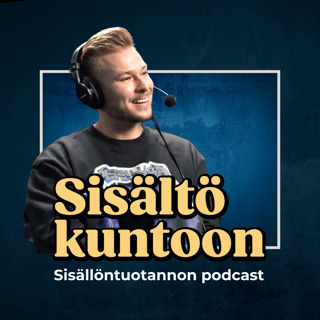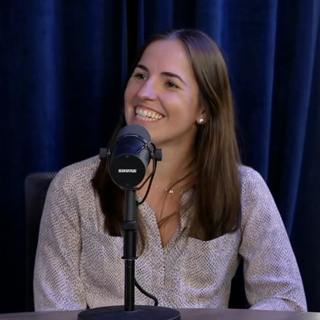
Ep. 515 Curative Intent Therapies for HCC: Today and Tomorrow
For hepatocellular carcinoma (HCC) patients who are not candidates for liver transplant or resection, lesion ablation can be a curative treatment. With multiple ablation options available and still under investigation, it can be challenging to navigate the differences between them. In this episode, Dr. Tyler Sandow hosts a discussion with interventional radiologists Dr. Kirema Garcia-Reyes, Dr. Sabeen Dhand, and Dr. Kevin Burns on the various ablation options for HCC and when to use each one. Physicians, nurses, nurse practitioners, and physician assistants can follow this link to earn CME / CE credits for completing an accredited learning activity related to this discussion: https://www.cmeuniversity.com/course/take/125738 --- This podcast is supported by an educational grant from AstraZeneca Pharmaceuticals and Boston Scientific. --- SYNPOSIS The doctors first discuss Barcelona-Clinic Liver Cancer (BCLC) Stage A patients, where lesion size and location are key factors in deciding between ablation and transarterial therapies. They then compare cryoablation and microwave ablation, highlighting that cryoablation offers better visualization and control of the ablation zone, while microwave ablation is more effective for treating larger lesions. Dr. Burns introduces histotripsy, a noninvasive treatment that uses ultrasound energy to mechanically ablate tumors. He shares his experiences as an early adopter of this technology and discusses how intraoperative cone beam CT can help treat lesions located near critical structures or those poorly visualized on ultrasound. Finally, Dr. Garcia-Reyes and Dr. Berman provide insights into patient selection, pre-procedural imaging, and technical tips for Y90. --- TIMESTAMPS 00:00 - Introduction 02:04 - Ablation vs Y90 in BCLC A Patients 05:58 - Same-Day Y90 15:55 - Y90 for Large Tumors 17:51 - Ideal Cases for Cryoablation 19:38 - Explanation of Histotripsy 32:09 - Procedural Specifics for Histotripsy 38:21 - Technical Tips for Y90 --- RESOURCES Including the Hollow Viscera (Stomach or Bowel) within the Ice Ball during Cryoablation: A Review of Adverse Events (Abramyan et al, 2024): https://www.jvir.org/article/S1051-0443(24)00681-X/abstract CME Accreditation Information: https://f7cae4ec-b69e-490d-9e0f-19b16a6f146d.usrfiles.com/ugd/f7cae4_a7c37ea3cd1b4d3fa53d5edf8dfe255b.pdf
7 Helmi 52min
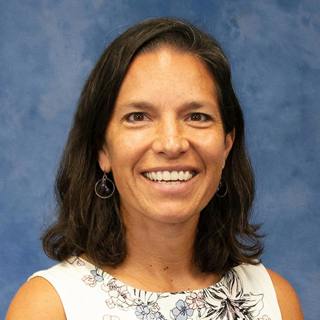
Ep. 514 Deep Sedation in IR: Intro to Ketamine with Dr. Amy Deipolyi
When deep sedation is required, it can be challenging to implement due to the difficulty of scheduling dedicated anesthesia coverage in the IR suite. Dr. Amy Deipolyi (interventional radiologist and Division Chief at Charleston Area Medical Center, WY) joins host Dr. Ally Baheti to explain an alternative approach to deep sedation through the use of ketamine. --- This podcast is supported by: Medtronic Abre Stent https://www.medtronic.com/en-us/healthcare-professionals/products/cardiovascular/deep-venous-stents/abre-venous-self-expanding-stent-system.html --- SYNPOSIS Dr. Deipolyi begins by sharing how she built a dedicated, academic IR program at a level 1 trauma center in West Virginia. The doctors then discuss the advantages of ketamine for deep sedation in the IR suite, and how Dr. Deipolyi gained administrative approval and implemented the change to achieve an alternative approach to deep sedation for interventional procedures. The discussion also includes how ketamine compares to traditional agents such as fentanyl and Versed. The episode concludes with Dr. Deipolyi’s practical advice to fellow IR’s interested in providing their patients deep sedation via ketamine and her ongoing and future research and outreach efforts. --- TIMESTAMPS 00:00 - Introduction 02:04 - Dr. Deipolyi’s Practice 14:32 - Overcoming Hurdles and Gaining Support 20:12 - Application and Patient Experiences 26:01 - Future of Deep Sedation in IR 28:55 - Conclusion
4 Helmi 33min

Ep. 513 Combination Therapy and Clinical trials for Advanced HCC: What They Really Mean
In the past five years, the use of immunotherapeutic agents for advanced cancers has emerged as a promising alternative to tyrosine kinase inhibitors and chemotherapy, making it an exciting time to be practicing oncology. In this episode, Dr. Tyler Sandow interviews oncology experts about the landscape of advanced hepatocellular carcinoma (HCC) and the current state of immunotherapy treatments. He is joined by medical oncologists Dr. Jonathan Mizrah, Dr. Lingling Du, and Dr. Adam Burgoyne, as well as interventional oncologist Dr. Zachary Berman. Physicians, nurses, nurse practitioners, and physician assistants can follow this link to earn CME / CE credits for completing an accredited learning activity related to this discussion: https://www.cmeuniversity.com/course/take/125737 --- This podcast is supported by an educational grant from AstraZeneca Pharmaceuticals and Boston Scientific. --- SYNPOSIS Drs. Burgoyne and Mizrahi provide a primer on immunotherapy and explain how they communicate the principles of this treatment to their patients. Dr. Du discusses the Imbrave clinical trial and how recent studies have shown improved overall survival when immunotherapeutic agents are used, especially when multiple agents targeting various pathways are employed. When choosing between different regimens, the doctors consider factors such as the patient's underlying liver function, symptom burden, and prior treatments. Importantly, the doctors also discuss contraindications to immunotherapy, including a history of organ transplant, autoimmune disease, and poor performance status—all of which put patients at high risk for deterioration with this treatment. The treatment of patients with poor liver function remains controversial, as underlying cirrhosis may prevent the recovery of liver function. Dr. Berman outlines recent clinical trials studying the effects of transarterial chemoembolization (TACE) combined with immunotherapy. Finally, the doctors discuss the future of HCC treatment and the benefits of continued innovation in both interventional and medical oncology. --- TIMESTAMPS 00:00 - Introduction to Immunotherapy 04:32 - Notable Clinical Trials 13:39 - HCC Etiology and Immunotherapy Outcomes 18:43 - Contraindications for Immunotherapy 23:05 - Adverse Effects from Treatment 25:14 - Combination Therapy 36:22 - Considerations for Immunotherapy Dosing 40:26 - The Future of HCC Treatment --- RESOURCES Atezolizumab plus Bevacizumab in Unresectable Hepatocellular Carcinoma, IMbrave150 Trial (Finn et al, 2020): https://pubmed.ncbi.nlm.nih.gov/32402160/ Tremelimumab plus Durvalumab in Unresectable Hepatocellular Carcinoma, HIMALAYA Trial (Abou-Alfa et al, 2022): https://evidence.nejm.org/doi/full/10.1056/EVIDoa2100070 Nivolumab versus sorafenib in advanced hepatocellular carcinoma (CheckMate 459): a randomised, multicentre, open-label, phase 3 trial (Yau, 2022): https://www.thelancet.com/journals/lanonc/article/PIIS1470-2045(21)00604-5/abstract Nivolumab (NIVO) plus ipilimumab (IPI) vs lenvatinib (LEN) or sorafenib (SOR) as first-line treatment for unresectable hepatocellular carcinoma (uHCC): First results from CheckMate 9DW (Galle, 2024): https://ascopubs.org/doi/10.1200/JCO.2024.42.17_suppl.LBA4008 Randomized Phase 3 LEAP-012 Study: Transarterial Chemoembolization With or Without Lenvatinib Plus Pembrolizumab for Intermediate-Stage Hepatocellular Carcinoma Not Amenable to Curative Treatment (Llovet, 2022): https://pubmed.ncbi.nlm.nih.gov/35119481/ EMERALD-1: A phase 3, randomized, placebo-controlled study of transarterial chemoembolization combined with durvalumab with or without bevacizumab in participants with unresectable hepatocellular carcinoma eligible for embolization (Lencioni, 2024): https://ascopubs.org/doi/10.1200/JCO.2024.42.3_suppl.LBA432 CME Accreditation Information: https://f7cae4ec-b69e-490d-9e0f-19b16a6f146d.usrfiles.com/ugd/f7cae4_a7c37ea3cd1b4d3fa53d5edf8dfe255b.pdf
31 Tammi 47min
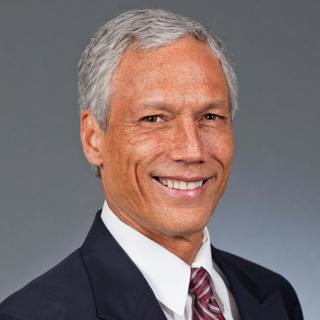
Ep. 512 The "Alzate Maneuver”: Flipping Retrograde Access with Dr. Gregg Alzate
Proximity to innovation often gives rise to further innovation. This trend is especially true in interventional radiology. Dr. Gregg Alzate (interventional radiologist in San Diego, California) joins host Dr. Ally Baheti to share his career pearls for early and mid-career IRs, and how he came to pioneer the Alzate Retrograde Antegrade Maneuver (A-RAM). --- This podcast is supported by: Reflow Medical https://www.reflowmedical.com/ --- SYNPOSIS Dr. Alzate starts by sharing his early influences, including his time with interventional radiology giant Dr. Harold Coons. The doctors also cover the importance of proper vessel access techniques, innovative approaches to limb salvage, and how to address complex chronic total occlusions (CTOs). Dr. Alzate then goes on to give us a thorough walkthrough of the A-RAM. The episode concludes with Dr. Alzate’s closing thoughts on being open to adopt new techniques, the impact of strong mentorship, and importance for consuming and sharing knowledge. --- TIMESTAMPS 00:00 - Introduction 03:05 - Dr. Alzate’s Journey 25:52 - A-RAM Technique 34:26 - CTO’s and Heavy Calcium 40:16 - Moral Injury in Medical Practice 43:35 - Honoring Dr. Harold Coons 46:23 - Closing Thoughts and Reflections --- RESOURCES Ohki, Takao et al. “Long-term results of the Japanese multicenter Viabahn trial of heparin bonded endovascular stent grafts for long and complex lesions in the superficial femoral artery.” Journal of vascular surgery vol. 74,6 (2021): 1958-1967.e2. https://www.jvascsurg.org/article/S0741-5214(21)01011-9/fulltext Kedora, John et al. “Randomized comparison of percutaneous Viabahn stent grafts vs prosthetic femoral-popliteal bypass in the treatment of superficial femoral arterial occlusive disease.” Journal of vascular surgeryvol. 45,1 (2007): 10-6; discussion 16. https://www.jvascsurg.org/article/S0741-5214(06)01612-0/fulltext
28 Tammi 49min
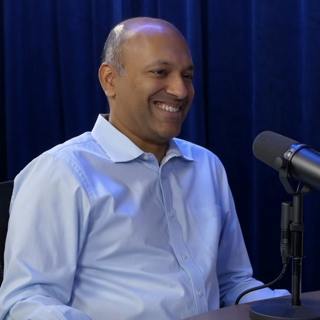
Ep. 511 How to Simplify Dosing: Understanding Y-90 Dosimetry from Simple to Complex
Of all the topics covered during interventional radiology training, dosimetry education is often delayed until after IRs enter clinical practice. In this episode, Drs. Tyler Sandow and Sabeen Dhand host a roundtable discussion with experts on the dosimetry fundamentals that all Y90 operators should understand. They are joined by interventional radiologists Drs. Zachary Berman, Kirema Garcia-Reyes, and Siddharth Padia, who provide their expert insights. Physicians, nurses, nurse practitioners, and physician assistants can follow this link to earn CME / CE credits for completing an accredited learning activity related to this discussion: https://www.cmeuniversity.com/course/take/125736 --- This podcast is supported by an educational grant from AstraZeneca Pharmaceuticals and Boston Scientific. --- SYNPOSIS The group agrees that dosimetry is not a one-size-fits-all approach. Dosing strategies depend on factors such as tumor size, perfusion territory, underlying liver function, the choice between glass versus resin spheres, and treatment intent. These considerations are illustrated with real-life case examples. The doctors also explore voxel-based dosimetry, a method for calculating the amount of radiation absorbed by different parts of the tumor. They stress the importance of learning how to perform accurate dosage calculations. Finally, the conversation touches on data from major Y90 trials, current guidelines, and the evolving perspective on Y90 as a potential curative treatment, rather than merely a bridging therapy. --- TIMESTAMPS 00:00 - Introduction 01:59 - Dosimetry Education During Training 05:46 - Benefit of Individualized Dosing 11:01 - Complications from High Doses 15:19 - Dosage Calculation Cases 22:51 - Duration of Response to Y90 25:00 - Dosing Based on Treatment Intent 29:11 - Challenging Case Example 42:31 - Voxel-Based Dosimetry 45:15 - Using Dosimetry Software --- RESOURCES LEGACY Trial (Salem et al, 2021): https://pmc.ncbi.nlm.nih.gov/articles/PMC8596669/ Voxel-based tumor dose correlates to complete pathologic necrosis after transarterial radioembolization for hepatocellular carcinoma (Pianka et al, 2024): https://pubmed.ncbi.nlm.nih.gov/38913189/ RAPY90D Trial (Kappadath et al, 2023): https://jnm.snmjournals.org/content/64/supplement_1/P268 Clinical, dosimetric, and reporting considerations for Y-90 glass microspheres in hepatocellular carcinoma: updated 2022 recommendations from an international multidisciplinary working group (Salem et al, 2023): https://pubmed.ncbi.nlm.nih.gov/36114872/ International recommendations for personalised selective internal radiation therapy of primary and metastatic liver diseases with yttrium-90 resin microspheres (Levillain, 2021): https://link.springer.com/article/10.1007/s00259-020-05163-5) CME Accreditation Information: https://f7cae4ec-b69e-490d-9e0f-19b16a6f146d.usrfiles.com/ugd/f7cae4_a7c37ea3cd1b4d3fa53d5edf8dfe255b.pdf
24 Tammi 54min
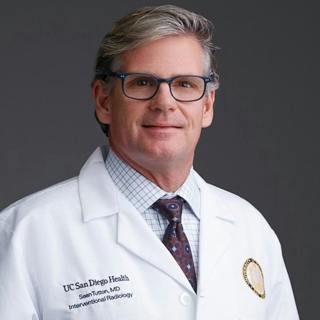
Ep. 510 Robotics Revolution in Interventional Radiology with Dr. Sean Tutton and Dr. Raj Narayanan
Robot-assisted technology has revolutionized surgical fields such as general surgery and urology—could interventional radiology be the next frontier? In this episode of the BackTable podcast, host Dr. Jacob Fleming explores the transformative potential of robotic-assisted percutaneous biopsies and ablations with experts Dr. Govindarajan “Raj” Narayanan from the Miami Cancer Institute and Dr. Sean Tutton from UC San Diego. --- This podcast is supported by: Quantum Surgical https://www.quantumsurgical.com/ --- SYNPOSIS Dr. Narayanan begins by sharing his initial interest in robotic applications for tumor ablations, aiming to maximize efficiency in his practice. Dr. Tutton then highlights the advantages of robotics for probe placement, especially in challenging cases. The two doctors discuss the logistics of the robotic system, including setup, imaging, and access choices. They also reflect on the learning curve associated with robotics and how it gradually enhances procedural efficiency while reducing mental fatigue. This improvement allows them to take on more complex cases with confidence. Overall, both experts agree that robotics has the potential to democratize minimally invasive procedures, offering new opportunities for skill development and advancement within the field of interventional radiology. --- TIMESTAMPS 00:00 - Introduction to the Podcast 03:30 - Developing an Interest in Robotics 10:44 - Integration of Robotics in the Procedural Suite 13:27 - Logistics of Robot System 18:38 - Planning for Percutaneous Access 22:39 - Future Implications of Robotics on Training Programs 35:51 - Efficiency and Volume Management with Robotics 40:39 - Learning Curves for Robotic Procedures 48:09 - Conclusion and Final Thoughts --- RESOURCES Quantum Surgical Epione Robot: https://www.quantumsurgical.com/epione/ ACCLAIM Trial: https://www.sio-central.org/ACCLAIM-Trial
21 Tammi 55min
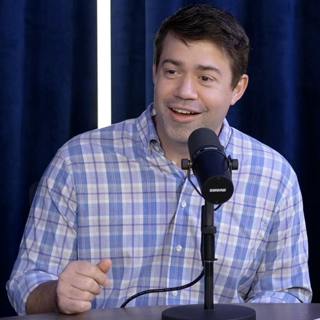
Ep. 509 Multidisciplinary HCC Care: Improving the Patient Experience with Combined Clinic
Welcome to the first episode of BackTable Tumor Board, and our first recording session at our new in-person studio! Guest host Dr. Tyler Sandow (interventional radiologist) leads a multidisciplinary discussion about patient care coordination in hepatocellular carcinoma (HCC) diagnosis and treatment, with insights from his colleagues at Ochsner Health– Dr. Steven Young (hepatologist), Dr. Jonathan Mizrahi (medical oncologist), and Deondra Bonds-Adams (patient navigator). Physicians, nurses, nurse practitioners, and physician assistants can follow this link to earn CME / CE credits for completing an accredited learning activity related to this discussion: https://www.cmeuniversity.com/course/take/125735 --- This podcast is supported by an educational grant from AstraZeneca Pharmaceuticals and Boston Scientific. --- SYNPOSIS The team speaks on the value of having multiple specialties weigh in on treatment conversations that are tailored to each patient’s medical history and risk factors, such as underlying cirrhosis and portal hypertension. Deondra highlights the importance of assessing the patient’s understanding of their disease and the role of physician extenders and schedulers in patient education. Dr. Young discusses the value of outreach clinics and streamlining the transplant evaluation process. Finally, Dr. Mizrahi gives advice on building referral networks and establishing early contact with transplant centers. --- TIMESTAMPS 00:00 - Introduction 00:46 - Multidisciplinary Tumor Board 06:00 - Patient Experience in Treatment Pathways 10:10 - Barriers to Treatment 16:03 - Benefits of IR Clinic 19:33 - HCC Screening and Risk Factors 24:08 - Building Referral Networks 30:34 - Strategies for Effective Scheduling 35:43 - The Future of HCC Treatment --- RESOURCES CME Accreditation Information: https://f7cae4ec-b69e-490d-9e0f-19b16a6f146d.usrfiles.com/ugd/f7cae4_a7c37ea3cd1b4d3fa53d5edf8dfe255b.pdf
17 Tammi 44min

Introducing Backtable Tumor Board
Welcome to the first episode of BackTable Tumor Board, and our first recording session at our new in-person studio! Guest host Dr. Tyler Sandow (interventional radiologist) leads a multidisciplinary discussion about patient care coordination in hepatocellular carcinoma (HCC) diagnosis and treatment, with insights from his colleagues at Ochsner Health– Dr. Steven Young (hepatologist), Dr. Jonathan Mizrahi (medical oncologist), and Deondra Bonds-Adams (patient navigator). --- This podcast is supported by an educational grant from: AstraZeneca https://www.astrazeneca.com/our-therapy-areas/oncology.html With additional support from: Boston Scientific https://www.bostonscientific.com/en-US/medical-specialties/interventional-radiology/interventional-oncology.html --- SYNPOSIS The team speaks on the value of having multiple specialties weigh in on treatment conversations that are tailored to each patient’s medical history and risk factors, such as underlying cirrhosis and portal hypertension. Deondra highlights the importance of assessing the patient’s understanding of their disease and the role of physician extenders and schedulers in patient education. Dr. Young discusses the value of outreach clinics and streamlining the transplant evaluation process. Finally, Dr. Mizrahi gives advice on building referral networks and establishing early contact with transplant centers. --- TIMESTAMPS 00:00 - Introduction 00:46 - Multidisciplinary Tumor Board 06:00 - Patient Experience in Treatment Pathways 10:10 - Barriers to Treatment 16:03 - Benefits of IR Clinic 19:33 - HCC Screening and Risk Factors 24:08 - Building Referral Networks 30:34 - Strategies for Effective Scheduling 35:43 - The Future of HCC Treatment
16 Tammi 2min







